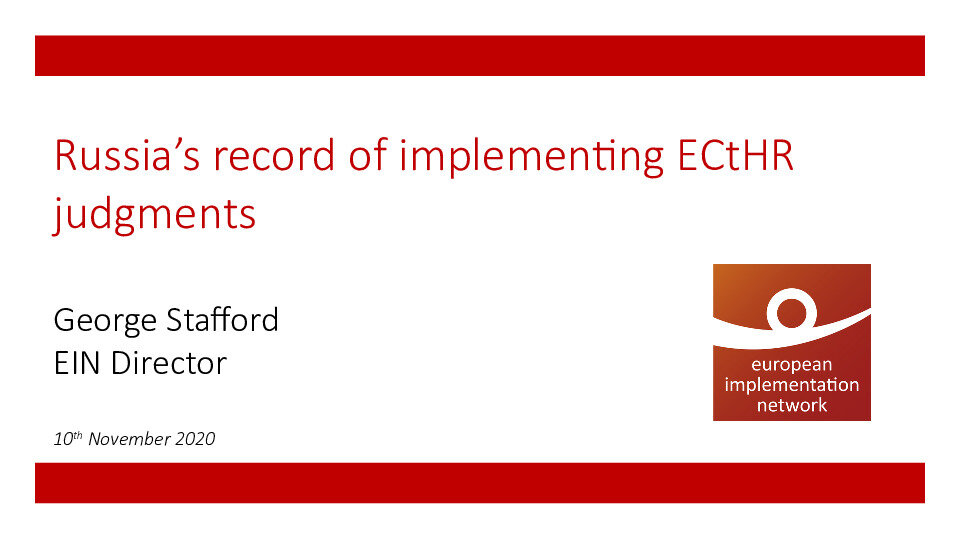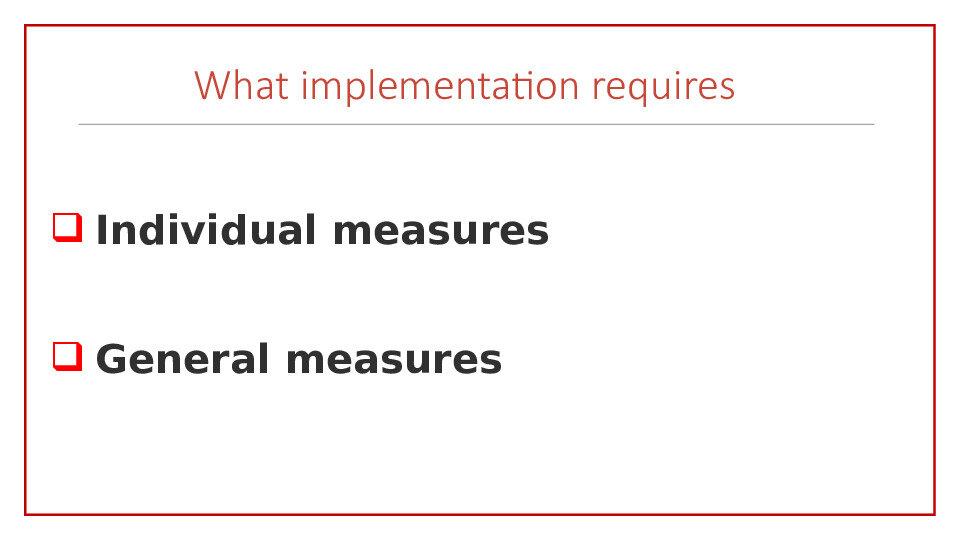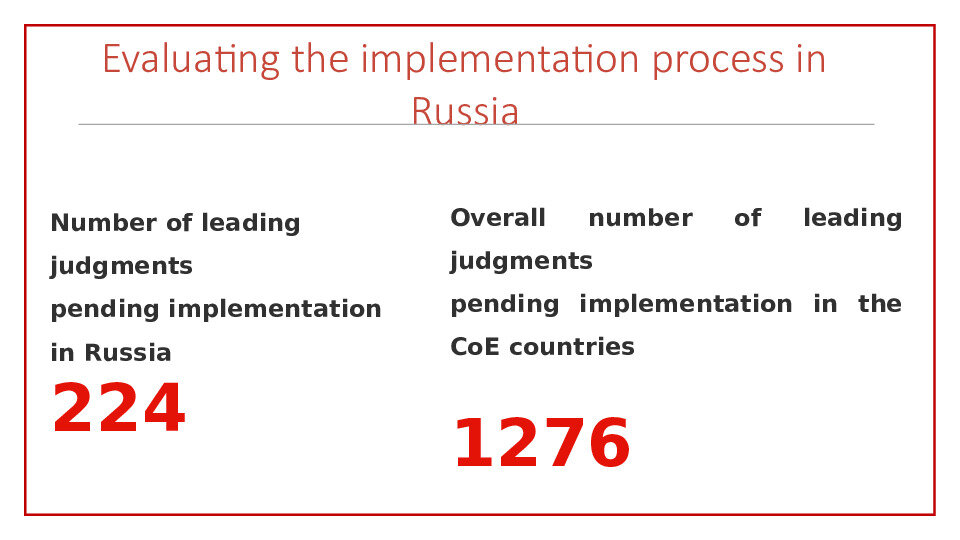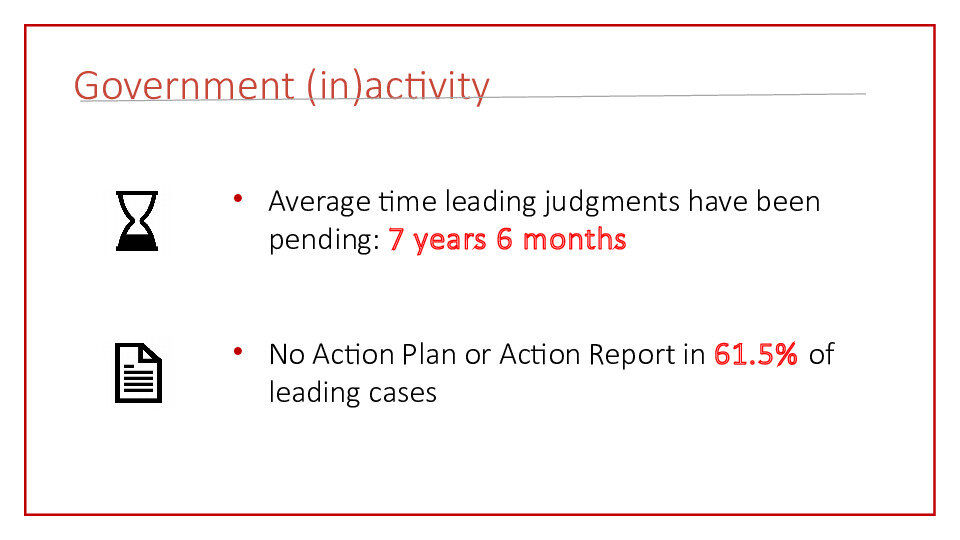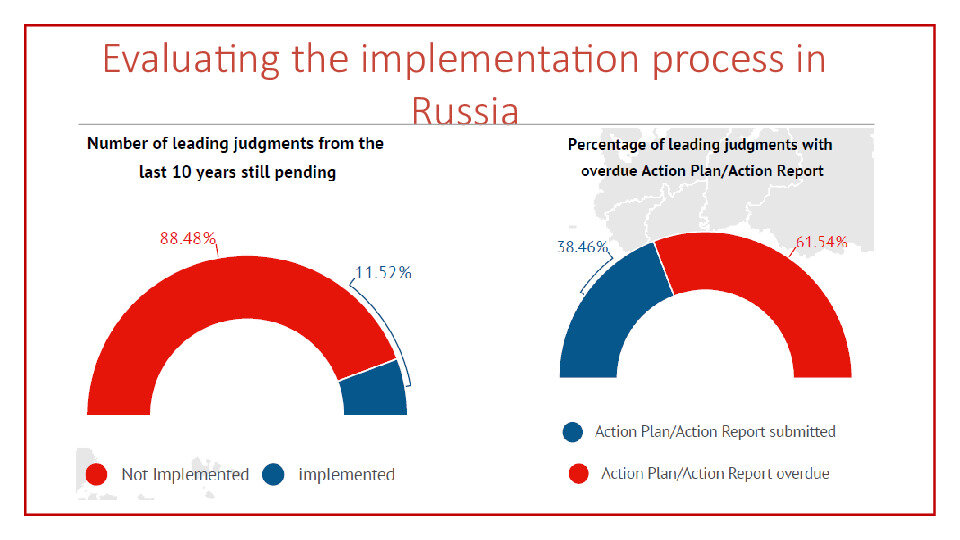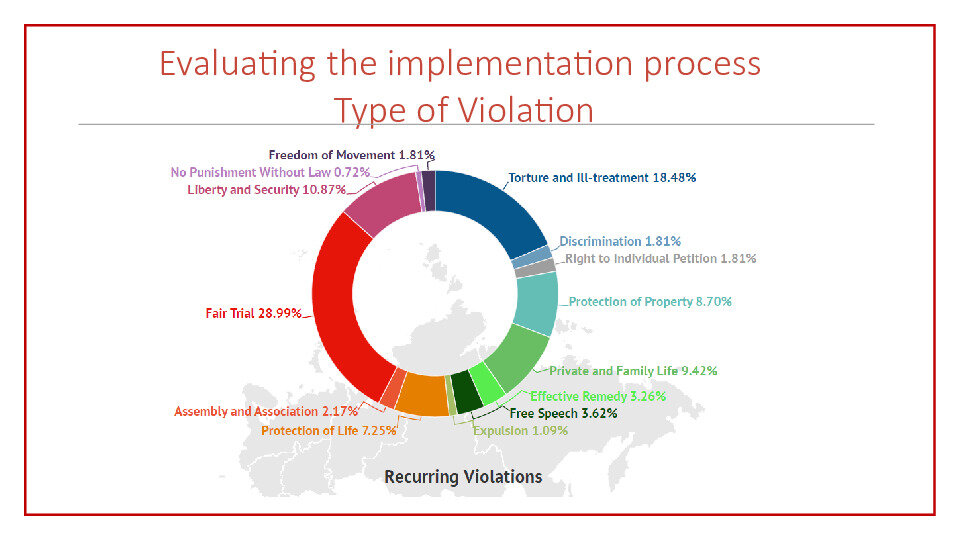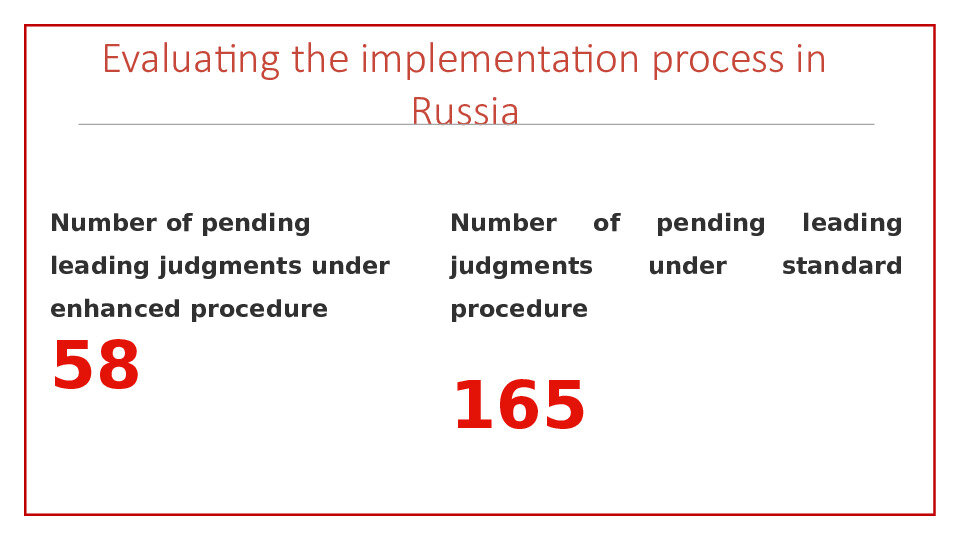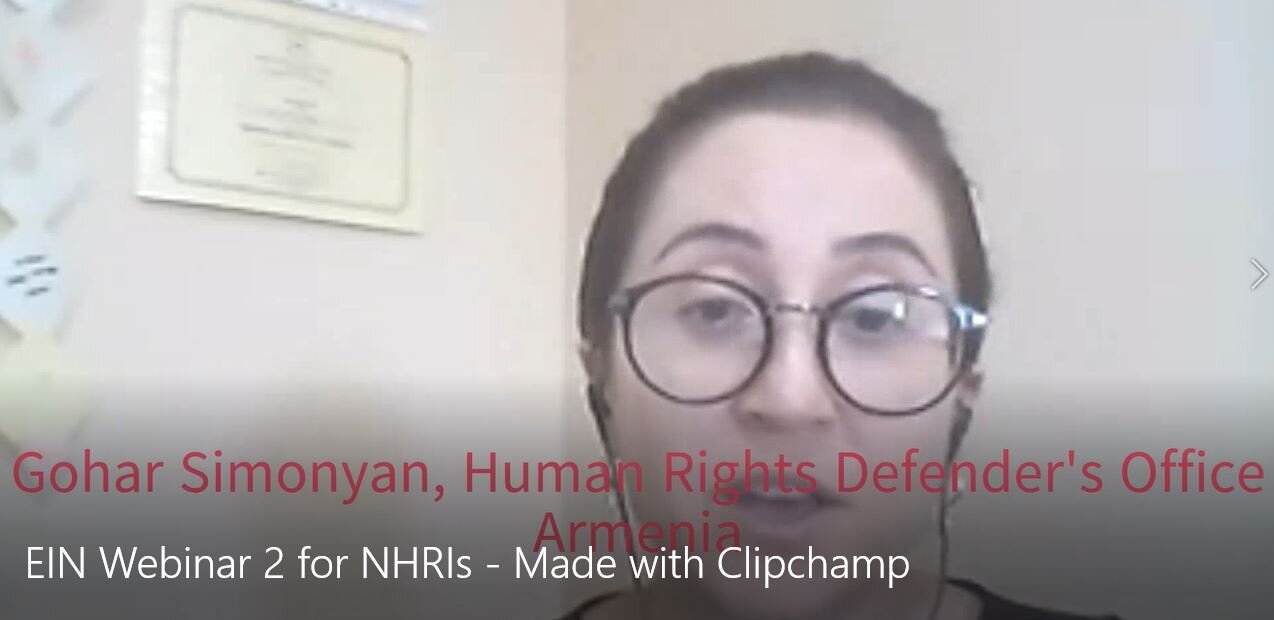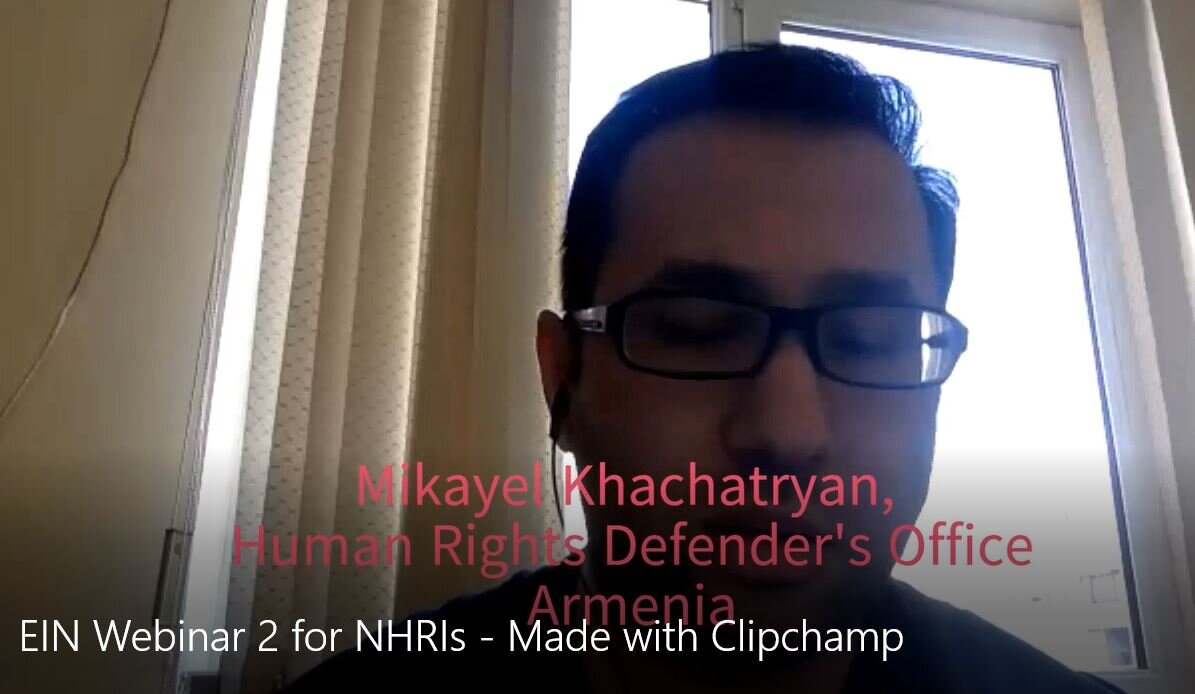Russia Webinar 2: Best practices for promoting the implementation of ECtHR judgments in Russia
/This week EIN facilitated its second webinar on improving the impact of the judgments of the ECtHR in Russia. The webinar aimed to provide an overview of what activities might be the most impactful in promoting the implementation of ECHR judgments within the country.
The webinar was divided into two sections. The first used the results of EIN’s survey of participants to set out the variety of activities that Russian NGOs are using to promote ECHR implementation at the domestic level, as well as highlighting which activities are considered to be the most impactful. These activities included engagement with the executive branch, advocacy through the judiciary, media coverage, co-operation with other NGOs, and educational work. Presentations were carried out by two NGOs experienced in working on ECHR implementation, to explain their advocacy campaigns.
The second part of the webinar focused on best practices for promoting the implementation of ECHR judgments experienced by NGOs across Europe. The EIN Guide for Civil Society on Domestic Advocacy for Implementation of ECtHR judgments was used to guide the discussion to provided best practices on activities including advocacy with the executive, forming domestic advocacy coalitions, and communicating about the (non)implementation of judgments.
This webinar provided an exchange of insights and experiences between participants that we hope will help all stakeholders active in Russia to find new partners and allies for advancing the implementation of ECtHR judgments in the country. We thank all participants who joined the webinar and those who shared their insights and experiences.
The last webinar in the series will take place next week, entitled ‘Towards a collective strategy to advance implementation of ECtHR judgments in Russia?’ (Tuesday 24th November 2020). For more information on Domestic Advocacy for Civil Society, please see the EIN Guide for full details.
Want to know if EIN has a member in your state? Or want to join EIN as a member or partner? Check out our webpage to find out more. Also, don’t hesitate to get in touch with EIN if you want us to link you up with a member or partner in your country or with expertise in your area of work. There is a wealth of experience within the network, and we are here to help you learn from each other.


